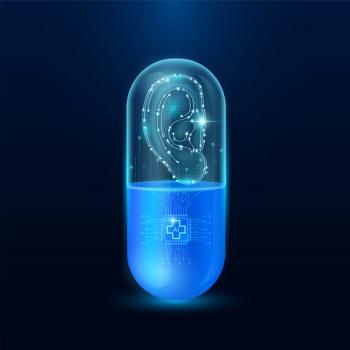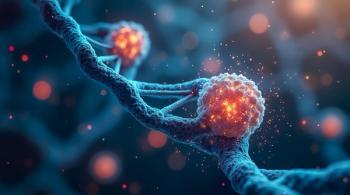
HIV Protein Could Help Make “Off-the-Shelf” CAR T Cells a Reality
A mouse study at Memorial Sloan Kettering Cancer Center has found that adding Nef, a protein from HIV, allows donor CAR T cells to avoid detection by the immune system while still attacking tumors.
A protein used by HIV to evade the immune system could make donor chimeric antigen receptor (CAR) T cell therapy more feasible and effective as a cancer treatment, according to research published in Nature.
Led by Karlo Perica, M.D., and colleagues at Memorial Sloan Kettering Cancer Center, the
FDA-approved CAR T cell therapies, such as Kymriah (tisagenlecleucel) and Yescarta (axicabtagene ciloleucel), are made using a patient’s own T cells, which are genetically modified to attack cancer. While effective, this autologous approach takes several weeks to manufacture and can cost hundreds of thousands of dollars per patient, depending on the specific therapy.
Donor-derived allogeneic CAR T cells could reduce both the cost and wait time, but they face a major challenge: the patient’s immune system often sees them as foreign and destroys them. Drug developers have tried various strategies to help these cells evade rejection, including suppressing the immune system, but these approaches have had limited success.
The researchers found that adding Nef, a protein from HIV, allows donor CAR T cells to avoid detection by the immune system while still attacking tumors. In preclinical studies, these modified cells survived longer and controlled cancer growth better than standard donor-derived CAR T cells.
“We wanted to learn which components of the immune system might cause rejection of donor CAR T cells, and how different viral proteins could figure out a way around that,” Perica said in a
The research builds on work done by Michel Sadelain, M.D., Ph.D., and his lab at Memorial Sloan Kettering Cancer Center. Sadelain left the Center in the fall of 2024.
Nef appears to work in two key ways. First, it helps disguise the CAR T cells, making them less recognizable to the immune system and reducing the likelihood that they will be destroyed. At the same time, the protein enhances the cells’ ability to survive after they are infused into the body, allowing them to persist longer and continue attacking cancer. This combination of stealth and resilience makes Nef-modified CAR T cells a potential new approach for overcoming the immune rejection that has limited off-the-shelf cell therapies.
If proven effective in humans, this could help allogeneic CAR T therapy overcome one of its biggest barriers — making the treatment widely available without requiring extensive immune suppression.
The authors state that further studies are needed to confirm that this approach is safe and effective in people. The researchers suggest that Nef-modified CAR T cells could be combined with other improvements in cell therapy to create a more durable, off-the-shelf cancer treatment.
Newsletter
Get the latest industry news, event updates, and more from Managed healthcare Executive.























